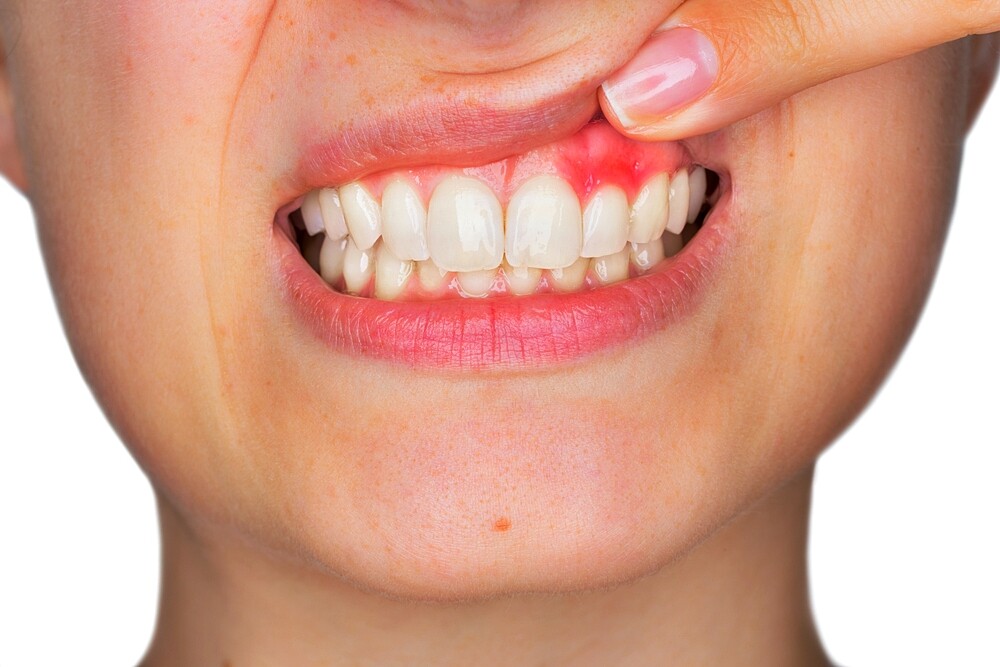Inflamed gums can cause pain and have various causes. We will give you tips on which home remedies help against inflamed gums.
Causes
- The reason for gum inflammation (gingivitis) often lies in neglected oral hygiene. Regular tooth brushing can definitely help to remove bacteria and prevent inflammation.
- Sometimes, however, injuries to the gums are the trigger. These can be caused, for example, by the consumption of edgy foods such as nuts.
- Gingivitis (inflamed gums) can also be caused by taking certain medications, hormone fluctuations or a weak immune system.
Symptoms
- Bad breath
- Bleeding
- Sore gums
- Pain in the gums/mouth
- Swelling
The best 5 home remedies
- Oral hygiene: As already mentioned, careful hygiene is the best way to prevent gingivitis as well as to get rid of it. Of course, if your gums are inflamed, you must brush your teeth carefully to prevent further damage to them. A mouth rinse can also help to get rid of the bacteria that cause gum inflammation.
- Apple vinegar: Apple vinegar is a real all-rounder when it comes to household remedies. It can also help you with gum inflammation, as it stimulates saliva production and has an antibacterial effect. Together with water, rinse about two teaspoons in your mouth.
- Chamomile: Chamomile is a great helper with gum inflammation, as it has a relaxing effect and disinfects the inflammation. It is best to gargle several times a day.
- Lavender: Lavender is a very popular helper as it smells great even compared to vinegar, garlic or other often recommended remedies. Lavender can be drunk as tea or used as a mouthwash. It is best to mix 2-3 drops of oil with water
- Ointment: With a slightly anaesthetic mouth ointment, which also contains herbs, you can treat the inflamed areas.
Treatment / Diagnosis
- Gingivitis usually subsides on its own after a few days. Of course, this requires careful oral hygiene, including brushing your teeth.
- However, if the household remedies as tips do not help, you should go to the dentist after two weeks at the latest. Your teeth may contain plaque that can no longer be removed by normal oral hygiene. The dentist can use mechanical techniques to remove bacteria and food debris.
- The dentist can quickly determine whether you have gum inflammation. In addition, the dentist can determine the so-called periodontal screening index (PSI) with a probe. This diagnoses potential symptoms for diseases of the teeth.

